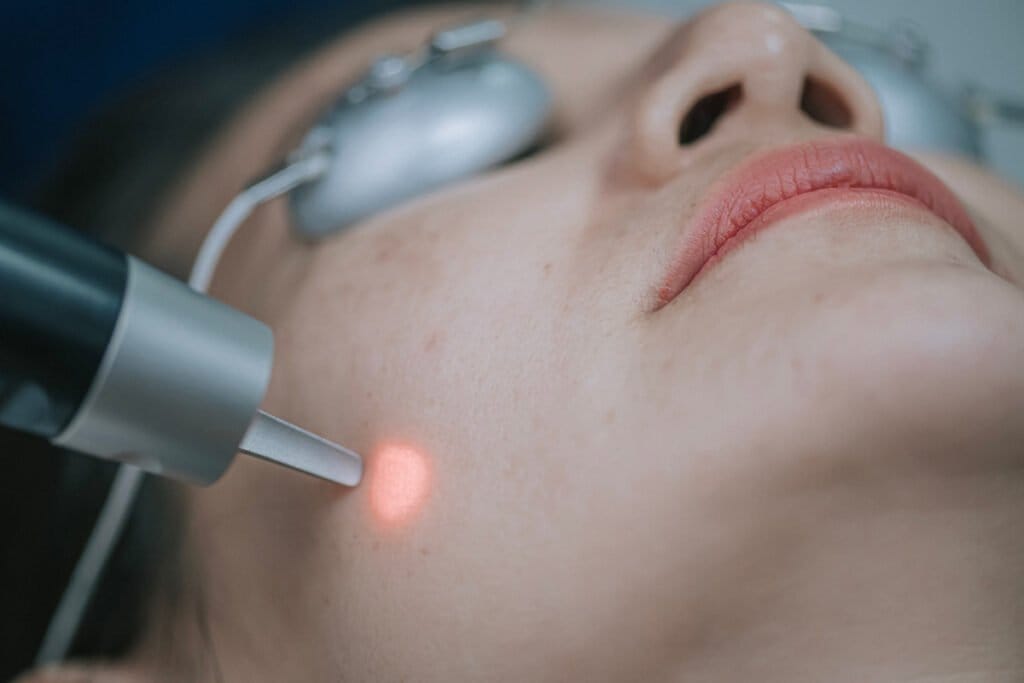How to Avoid Scarring after Cosmetic Laser Treatment
| ABCS
Lasers are widely considered to be a tried and true staple at cosmetic surgeons’ offices and medspas, and research studies confirm their safety and efficacy for skin resurfacing. But with more people reporting burns and scars after cosmetic laser treatments, you are wise to do your homework if you are seeking laser or light therapy for either cosmetic skin rejuvenation or hair removal. Here are some steps you can take to protect your skin while receiving the benefits of laser treatment.
Carefully screen your chosen laser technician
The laser technician, aesthetician, or medical provider performing treatment is critical to your treatment outcome. They will not only tailor the treatment to your skin, but will be responsible for proper use of the laser device and avoiding any potential side effects. Consider the following when choosing a laser provider:
- Training: Ask the technician about where they were trained in proper use of laser devices. Specifically ask about their experience with your skin type and the laser treatments they recommend for you.
- Experience: Ask how many years they have been performing treatments; how many laser patients they treat in a given month; and how often they have treated your specific concerns.
- Patient reviews: Look for testimonials from previous patients on platforms like Real Patient Ratings, Google, and RealSelf.
- Before and after photos: Ask to see photos of previous patients with similar concerns to yours; this offers insight into their experience and helps you set realistic expectations for treatment, as well.
- Consultation: Expect the provider to thoroughly examine your skin, ask questions, and review your medical history before recommending a treatment plan. More severe skin conditions may require several treatment sessions, so expect your provider to be up-front about the level of treatment needed and the associated costs, as this shows they have a true interest in meeting your long-term goals.
Cosmetic laser treatment is often offered at cosmetic surgery practices, dermatology practices, or medical spas. If you choose a medical spa, be sure it is a physician-led spa with experienced providers. Providers who may offer laser treatments include specially-trained laser technicians or aestheticians; nurses or nurse practitioners; physician assistants; or physicians themselves.
Your treatment outcome depends not just on the technology used, but also on the provider’s expertise and your post-treatment skin care.
Ask about the recommended device and its settings
Each laser has a unique makeup, its own settings, and certain concerns that it is well-suited to treat. Optimal results largely depend on choosing the correct device and settings for your needs. At minimum, devices should be FDA-cleared for use with a track record of safety, and your provider should be extensively trained and experienced with their laser device.
They should also offer you the ideal device for your needs. There are Nd:YAG lasers, CO2 lasers, and intense pulsed light (IPL) devices. Additionally, devices can be either non-ablative or ablative, and fractional or non-fractional. All of these choices matter to achieving ideal results for your needs. Particularly for patients with darker skin tones, the treatment should be carefully customized to avoid post-inflammatory hyperpigmentation (PIH), so ask your provider to confirm they are experienced in treating your skin tone.
There may also be cases where your provider recommends an alternative treatment instead of a laser: for instance, patients may achieve similar results from microneedling with or without radiofrequency (RF), chemical peels, or RF skin tightening devices. These may have fewer side effects for certain patients.
Follow post-treatment instructions
While the bulk of the responsibility to prevent scarring is on your provider, you will be responsible for avoiding scarring after the procedure by protecting your skin. Recommendations include:
- Gently clean the treated area and moisturize with gentle products that your laser provider recommends.
- Do not use retinol, exfoliants, or other products with active ingredients until cleared by your provider.
- If your skin flakes or you develop a scab, avoid picking at the skin—this is likely to leave a scar.
- Avoid sun exposure with daily SPF coverage, as UV rays damage healing skin and can lead to the development of scar tissue.
While cosmetic laser treatments offer transformative results, they carry risks. By selecting an experienced physician or physician-led practice, understanding the device and treatment options, and diligently following post-treatment instructions, you and your provider can reduce the risk of complications, including scarring.
To find a board certified cosmetic surgeon near you, explore our surgeon directory »